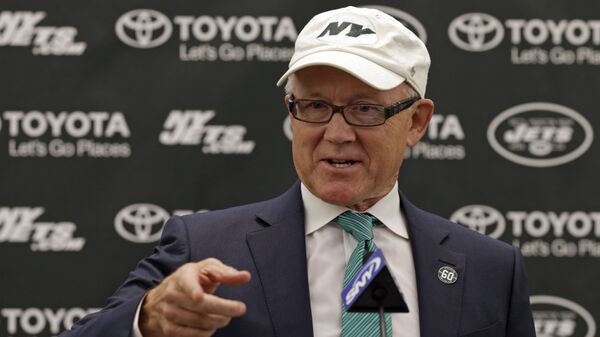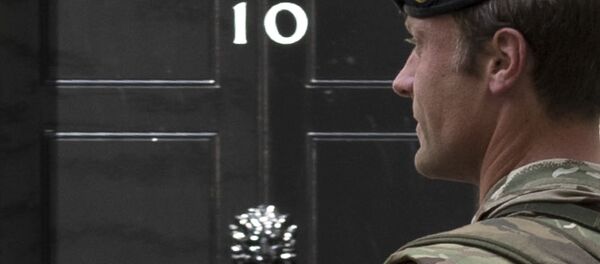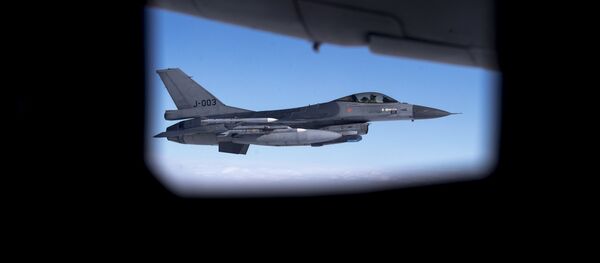Speaking in a mainstream media interview September 24, US ambassador to the UK, Woody Johnson, implied that Britain should spend more than the NATO target of two percent of GDP on defense.
Despite calls from President Donald Trump for all members of the military alliance to meet the threshold, the UK is currently one of a mere five compliant countries out of the 28-strong bloc.
"You are spending the minimum, and you have to decide whether it is enough. We spend twice that much and could still spend more. Whether you have the capability you need to be a powerful nation going forward, I think you are going to have to determine," the ambassador said.
Was so honored to receive this signed ball from the green and white game in Afghanistan. #SaluteToService. pic.twitter.com/Mj61EtLu8z
— Woody Johnson (@woodyjohnson4) November 17, 2016
Warnings about the apparently diminutive size of the UK's defense budget have been a common refrain over the course of 2017. In July, former United Nations commander Bob Stewart, now a Conservative MP, described the size of the UK's Armed Forces as "laughable" and "disgraceful" — and called on ministers to exceed the NATO target.
Dwindling Reach
Stewart's comments followed the release of a report indicating the UK has 82,480 full-time soldiers, of which only 78,150 are fully trained. In 2014, troop numbers stood at 87,180, and two years earlier over 100,000. The number of fully trained Royal Navy/Royal Marines personnel stands at a combined 29,430 (a 1,020 shortfall from the government's target), and the RAF is around 1,000 below the government's target of 31,750.
He also noted these were the smallest number of troops maintained by the country "since the 17th century" — and suggested spending should be based on what the UK "needs" rather than "some kind of figure."
That same month, it was revealed the UK relied on air support from NATO allies to patrol and guard its own territorial waters, as a result of scrapping the country's fleet of Nimrod Maritime Reconnaissance Aircraft in 2010. Official figures showed around 40 planes from NATO member states had been flown in to police UK seas, with the US dispatching aircraft to RAF Lossiemouth, Scotland 20 times, while Canada sent planes on eight occasions. A further five were sent from Germany and France apiece, while Norway lent one.
There is no doubt the UK has ever-increasingly relied on military and intelligence support from other nations since World War II, due to continual military budget cuts. Most commonly, the US has been depended upon — the UK has managed to retain its "blue water" capabilities thanks to US air cover. For instance, a near-total lack of jet fighter support (the country's last Harriers were decommissioned in 2010), meant in 2011, the country was forced to borrow planes from the US to protect Royal Navy warships fighting in Libya.
In September, former First Sea Lord Admiral Sir George Zambellas warned that without greater investment, the UK would have the military capability of a "Third World" country.
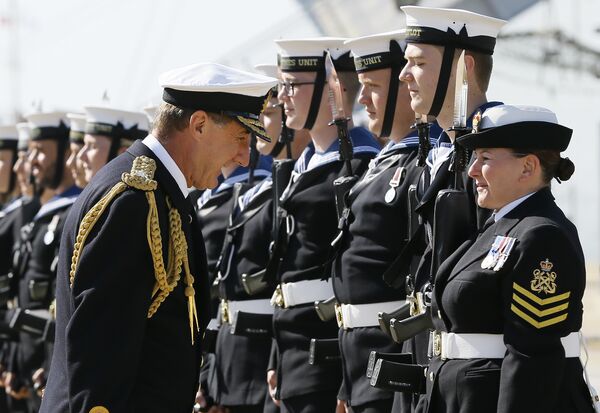
In a mainstream media interview, Zambellas said either the UK spent more, or stopped doing "serious things" and descended to the status of a "Third World nation security-wise."
Ulterior Motives
Nonetheless, despite these shortcomings, the UK defense budget is still the fifth largest in the world, and the government remains committed to a multi-billion dollar program to update the military's capabilities. Moreover, while British sea power has inarguably declined over the past century, it is still considered the best navy in the world in some areas of capability, particularly the high standards of its personnel and training, and is a world leader in anti-submarine and mine-warfare operations.
Some critics have suggested these repeated interventions are an alarmist smokescreen, designed to inculcate fear about the UK's defenselessness, and justify sizable increases in UK defense spending in future. Many of these interventions have been made by individuals with a potentially vested interest in such a boost — Zambellas, for instance, is a Senior Advisory Board Member of defense giant Boeing's Liquid Robotics arm, a division that would profit handsomely from greater naval investment.
Likewise, President Trump has found himself increasingly out of favor in most Western European capitals since his election, with countries such as Germany refusing to yield to calls for enhanced defense spending.
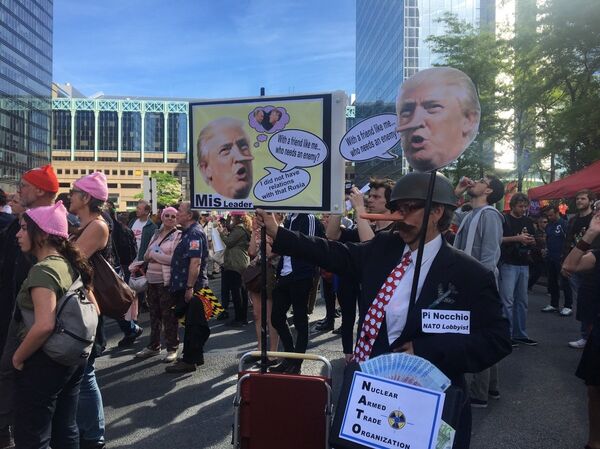
Prime Minister Theresa May is one of the few European leaders to have sought a warm relationship with Trump, and the president has responded positively, promising in August to "make Britain great again" with a "major" post-Brexit trade deal, and criticizing Europe's "protectionist" inclinations.
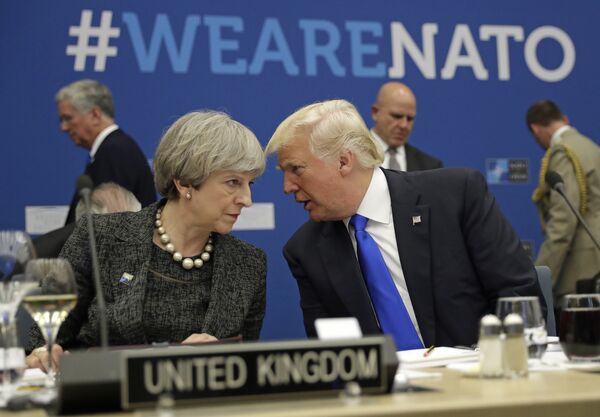
Comments made by Woody Johnson elsewhere were similarly flattering to the UK, with the ambassador praising the British vote to leave the European Union.
"The UK should have the freedom to control movement over its borders. I think it can be worked out. I am pretty optimistic," he added.

